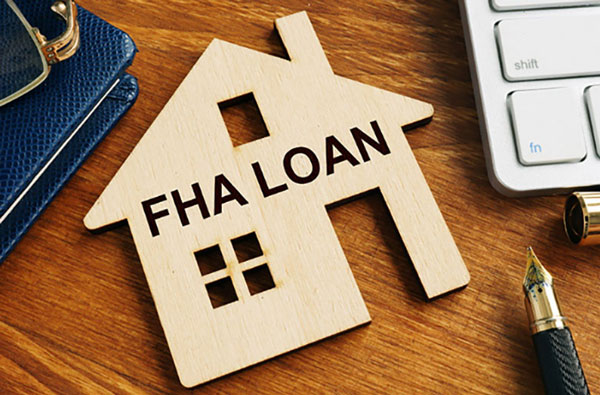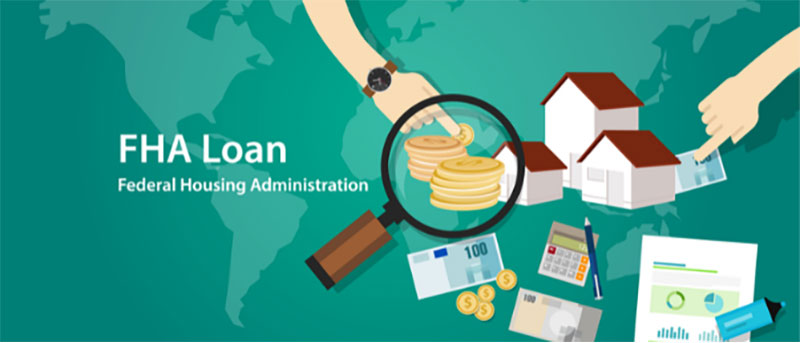What Is an FHA Home Loan
Feb 11, 2024 By Susan Kelly
Are you considering buying a home but need help figuring out where to start? You should explore an FHA Home Loan. These loans are insured by the Federal Housing Administration (FHA) and offer potential buyers several advantages over traditional mortgages.
From low down payments to more lenient credit requirements, these government-backed loans make homeownership accessible for many individuals who wouldn't qualify for other loan programs. In this blog post, we'll explain an FHA Home Loan in detail, so you can decide if it's the right mortgage option for your situation.
What Is a Federal Housing Administration (FHA) Loan

A Federal Housing Administration (FHA) loan is a government-insured mortgage. It is designed to make homeownership more accessible for people who may not otherwise qualify for a traditional mortgage.
How Does an FHA Loan Work

An FHA loan works by insuring a loan made by an FHA-approved lender. First, the borrower must meet certain criteria for eligibility, including a credit score of at least 500 and a debt-to-income ratio of 43% or less.
Then, the purchased property must be appraised by an FHA-approved appraiser and meet certain requirements to be eligible for an FHA loan.
When the borrower is approved for the loan, the lender issues a promissory note and mortgage that protects the lender in case of default. The Federal Housing Administration then insures against any losses incurred by the lender due to default on the loan.
This insurance ensures lenders take less risk when issuing FHA loans, meaning borrowers can secure financing with better terms and rates than traditional mortgages.
In addition to lower credit requirements, FHA loans typically have more lenient underwriting standards than traditional mortgages. This lower credit score means borrowers may not need perfect credit or a large down payment to qualify for an FHA home loan.
Additionally, because these loans are government-backed, homeowners may be able to access more favorable terms.
For example, FHA loans can offer a lower down payment of as little as 3.5%, while conventional loans typically require at least 5%. Additionally, closing costs on FHA loans can be rolled into the loan amount, so you don't need to bring additional funds to the closing table.
Role of the Bank in an FHA Loan
When you apply for an FHA Home Loan, the bank or mortgage lender you use to make your purchase will provide the money. However, before they can do this, the bank must be approved by the Federal Housing Administration (FHA) as a lender and obtain certification from them.
This certification verifies that the bank meets all of the FHA's requirements and is allowed to offer FHA-insured loans.
Types of FHA Loans
An FHA Home Loan can take several forms, providing potential homeowners with benefits like low down payments and lenient credit requirements. Below we'll discuss the most popular types of FHA loans to help you determine which is best for your situation.
Home Equity Conversion Mortgage (HECM)
The Home Equity Conversion Mortgage (HECM) provides elderly individuals with an opportunity to convert their home equity into cash. These loans allow seniors age 62 or older to borrow money against the value of their homes without making monthly mortgage payments.
HECMs are available in fixed and variable rate options and offer competitive interest rates compared to traditional mortgages.
FHA 203(k) Improvement Loan
The FHA 203(k) Improvement Loan is designed to help homeowners finance renovations and repairs on their existing residences. These loans can be used for everything from minor upgrades to major remodeling projects and can also cover the cost of necessary appliances or other items needed to complete the job.
The 203(k) loan requires that homeowners provide a minimum down payment of 3.5% and offers flexible credit requirements, making it an attractive option for many potential buyers.
FHA Energy Efficient Mortgage
The FHA Energy Efficient Mortgage (EEM) makes financing energy-efficient home improvements more accessible by allowing borrowers to add the cost of energy-efficient features to their mortgage.
This loan enables homeowners to make low-cost energy improvements to their residences without taking out a separate loan or depleting their savings.
Section 245(a) Loan
Section 245(a) Loan allows borrowers with declining incomes to purchase a home with a lower down payment and interest rate than other traditional mortgage programs. This loan is also known as the "Graduated Payment Mortgage" and enables borrowers to pay off the loan balance more quickly than they would with other types of mortgages.
With this loan, the initial payments are low but will gradually increase until they reach an amount equal to that of an amortizing mortgage.
How To Get An FHA Loan
Confirm your eligibility
You must meet certain criteria to qualify for an FHA loan, including having two years of steady employment and a good credit score (580 or higher). Additionally, you'll need a valid social security number and proof of legal U.S. residency.
Get familiar with loan limits
Your location and property type determines the maximum amount you can borrow from an FHA loan. Loan limits vary based on these factors, so it's important to research them before looking for a home.
Know your budget
Before you apply for an FHA loan, it's important to determine how much you can afford in terms of your monthly payments and upfront costs. Use online calculators or speak with a financial advisor who can help you understand what is realistic for your situation.
Look for lenders
Once you have determined that an FHA loan is the right option for your needs, contact various lenders to compare rates and get pre-approved for the loan amount. Ask questions about fees, closing costs, and other details so you know what each lender offers.
Compare your offers
After receiving offers from different lenders, compare them to determine the best fit for your budget. Once you decide, you can move forward with the loan application process.
By following these steps, you can ensure that you obtain an FHA home loan that meets your needs and helps you achieve your goal of homeownership.
Pros and Cons of FHA Home Loan
Pros:
- Lower down payment requirements
- Flexible credit score requirements for borrowers
- Low closing costs and fees compared to other loan types
- The opportunity to refinance with lower interest rates in the future.
Cons:
- Borrowers must pay a mortgage insurance premium Included in their monthly payments.
- Property appraisals must meet FHA standards for safety and habitability, which may limit your home-buying options.
- Interest rates are typically higher than on conventional loans.
FAQs
How can I qualify for an FHA loan?
Typically, a minimum credit score of 580 would be best to qualify for an FHA loan. Additionally, borrowers must have two years of employment and proof of legal U.S. residency.
Does my property need to meet any standards?
Yes, all properties financed with an FHA loan must meet the FHA's safety and habitability standards. These standards include property inspections for structural integrity, plumbing, electrical wiring, and other conditions.
Can I make changes to my home after closing?
Yes, FHA loans allow you to make certain improvements to your home after closing, such as painting or installing new appliances. However, large renovations may require that you obtain an additional loan.
Conclusion
The FHA home loan is an incredible option for many potential homeowners. It offers lower rates, down payments, and more predictable terms than traditional loans. Furthermore, FHA loans are backed by the government, making them a much safer bet than many other options. The application process may be intimidating initially, but it can go smoothly with some preparation and research. Before signing on the dotted line, explore all of your options to determine which loan suits you best and make sure that you qualify for an FHA loan if that's the route you decide to take.








